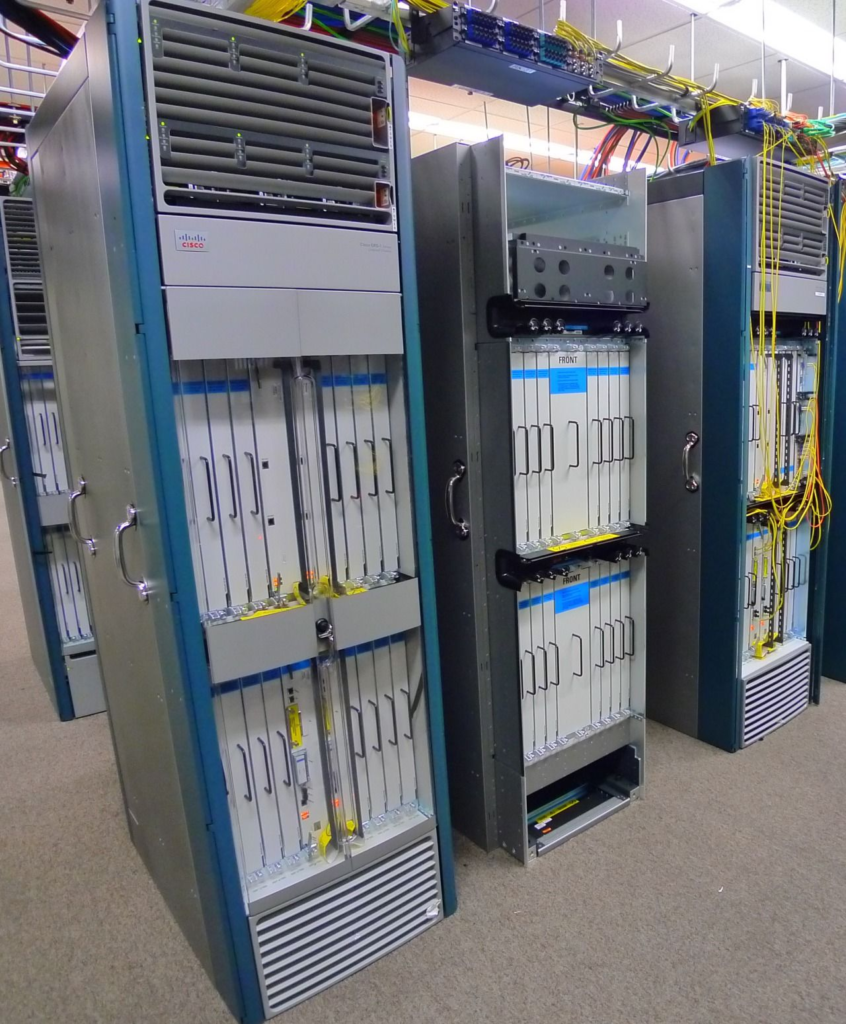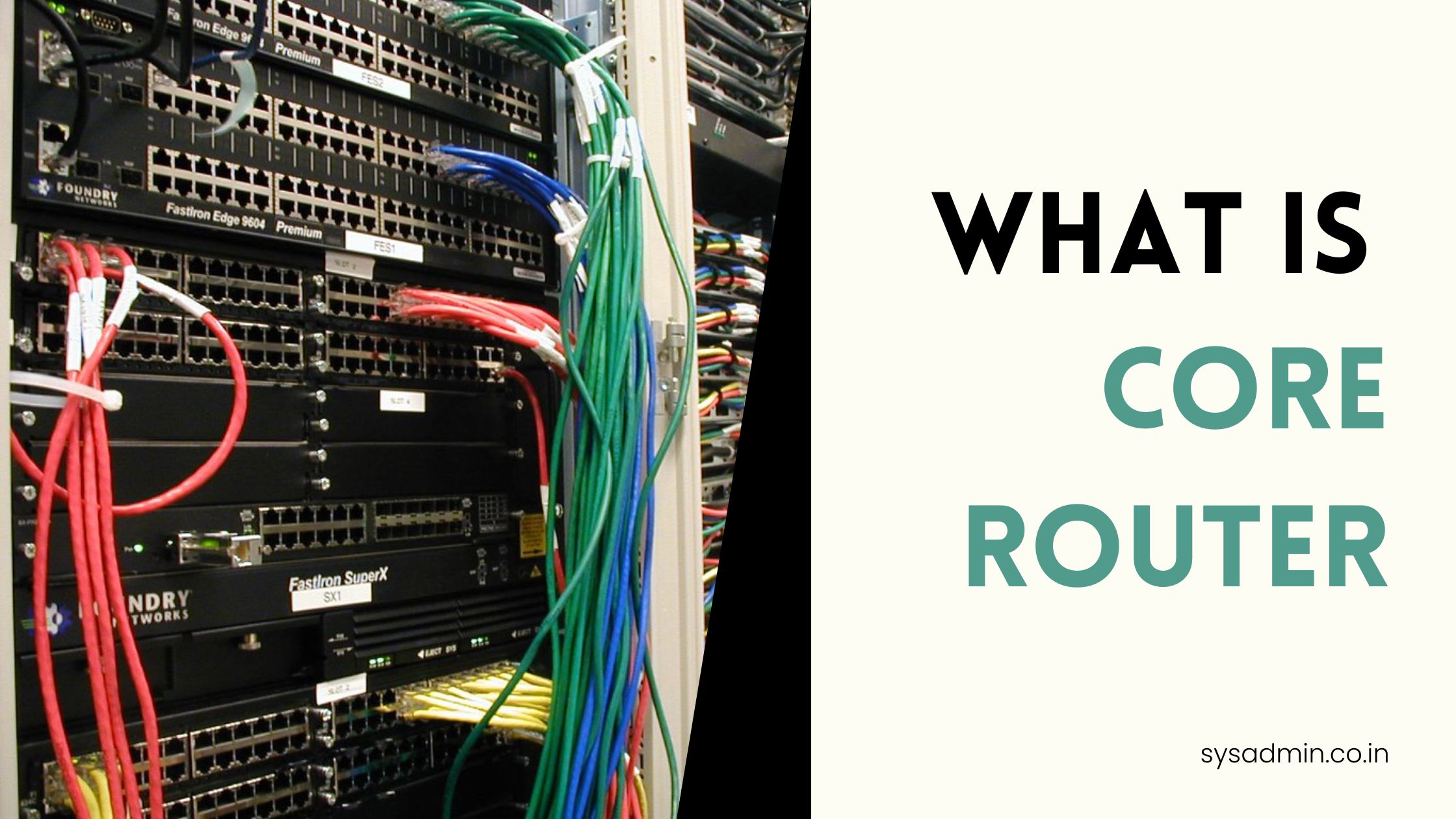In the vast realm of networking, the term “core router” takes center stage, serving as a linchpin in the intricate web of data transmission. This article delves into the core of core routers, unraveling their significance and functionality.
What’s a Core Router?

A core router is a pivotal component in a network infrastructure, responsible for managing and directing data traffic at the core or backbone level. Unlike edge routers that connect individual devices to the network, core routers handle large volumes of data, ensuring seamless communication between different networks.
Imagine the internet as a huge web of connected roads. Now, think of a core router as the traffic director at the busiest intersection of these roads.
Key Functions of a Core Router:
- High-Speed Data Transmission: Core routers are designed to handle massive amounts of data at ultra-fast speeds. They serve as the nexus point for various networks, facilitating the swift exchange of information between them.
- Efficient Routing: These routers employ sophisticated algorithms to determine the most efficient path for data to traverse the network. This ensures optimal performance and minimal latency, crucial for applications demanding real-time data transmission.
- Reliability and Redundancy: Core routers are built with redundancy in mind, featuring multiple connections and failover mechanisms. This design ensures uninterrupted connectivity, even in the face of hardware failures or network issues.
- Scalability: As the backbone of the network, core routers must be scalable to accommodate the ever-growing volume of data traffic. They are equipped to handle increased capacity and adapt to the evolving needs of the network.

Importance in Network Architecture:
- Traffic Aggregation: Core routers aggregate data from various sources, consolidating it for efficient routing. This aggregation enables them to handle the vast data flows traversing the network’s core.
- Interconnecting Networks: Core routers play a crucial role in linking different networks, such as local area networks (LANs) or wide area networks (WANs). They act as gatekeepers, ensuring data flows seamlessly between these interconnected networks.
- Enabling Global Connectivity: In the age of globalized communication, core routers facilitate the exchange of data across international borders. Their ability to manage diverse data sources makes them integral to the functioning of the internet on a global scale.
The Evolution of Core Routers:
As technology advances, so do the capabilities of core routers. This section explores the ongoing evolution of core router technology, touching upon innovations, scalability, and the ever-expanding role they play in shaping the future of networking.

Conclusion:
In essence, a core router is the backbone of a robust network infrastructure, ensuring efficient and high-speed data transmission. Its role in directing traffic, ensuring reliability, and interconnecting diverse networks makes it a cornerstone in the world of networking. As technology continues to advance, the importance of core routers is set to grow, underlining their significance in the seamless functioning of our interconnected digital world.
In this comprehensive exploration of core routers, we’ve barely scratched the surface of their complexity and significance. As the digital landscape continues to evolve, so too will the capabilities and importance of these technological stalwarts, ensuring a connected world where information flows seamlessly across the digital highways.
